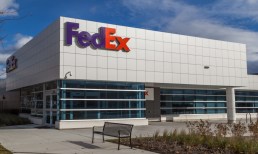Led by Paris-based VC firm Singular and German HealthTech investor Heal Capital, the round brings the company’s total funding to 36 million euros ($40.6 million) in investor funding, making the firm one of the fastest-growing health technology companies in Europe.
The Berlin-based startup, founded in December 2019, provides an online platform where patients can get a personalized, holistic, and faster diagnosis directly from doctors, helping to save time and eliminate expensive treatments often associated with dermatological medical care.
For a monthly subscription fee of 49 euros (about $55), patients can register online, complete a questionnaire and upload photos of their skin concerns on the platform, after which a doctor is assigned to them for the duration of their treatment, providing regular check-ins and adjusting prescribed medication depending on the patient’s feedback.
Commenting on the funding, Florian Semler, co-founder of Formel Skin, said the current method of treating chronic skin conditions is “broken” due to “a lack of dermatologists and an unfavourable reimbursement structure” across Europe that discourages doctors from spending more time with patients who have chronic skin conditions.
“For those who can go private, it’s expensive and for those who can’t, there is a long wait. Formel Skin tackles these issues by providing better treatment outcomes and making high-quality dermatology more accessible,” Semler said.
Advertisement: Scroll to Continue
The skincare startup has earmarked the fresh funding for expansion plans into new European markets, as well as growing the team of 70 employees in Germany and adding new treatment approaches to its offerings.
Read more: UK Leads EU in Driving Global Growth In HealthTech Sector
Overall, investments in global health technology startups have skyrocketed this year, hitting $51.3 billion, a staggering 280% increase from 2016 levels, according to recent data from London & Partners and Dealroom.co.
This is due to the increasing number of people seeking alternative and remote ways to access health services following the pandemic, given the convenience and flexibility it provides.
See also: Digital Health Startups Making Major Moves Across UK, Europe and Africa
According to the report, the United Kingdom leads Europe in driving this sector growth with the second-highest number of HealthTech companies that have received funding since 2016 (1,090), behind the United States (6,551).
The country is also the largest recipient of venture capital (VC) investment in Europe so far this year ($3.8 billion), behind the U.S. ($31.9 billion) and China ($4.1 billion).
An example of a U.K.-based company making waves in the sector is medical startup Babylon Health, one of the world’s fastest-growing digital healthcare companies, that was founded in 2013.
In October, the startup was valued at about $3.5 billion after it began trading on the New York Stock Exchange (NYSE), and in its first earnings call as a public company last month, it reported 371% year-over-year growth in revenue to $74.5 million, up from $15.8 million in Q3 2020.
Related: UK’s Babylon Health Sees ‘Huge Demand’ in US Driven by Unique, Digital-First Solution
In January of 2020, the London-based HealthTech startup launched its artificial intelligence (AI)-powered medical chatbot service in the United States, where Dr. Ali Parsa, Babylon’s CEO and founder, said the company is currently seeing “fantastic” tailwinds.
“We are not seeing a lot of competition [there] right now, partly because most of our competitors are brick-and-mortar first, and therefore it’s much more difficult for them to roll out across 60 out of the 62 counties in New York, … where we could deploy our services in a matter of weeks, as opposed to building clinics, which would have taken years,” Parsa told analysts on a call.




